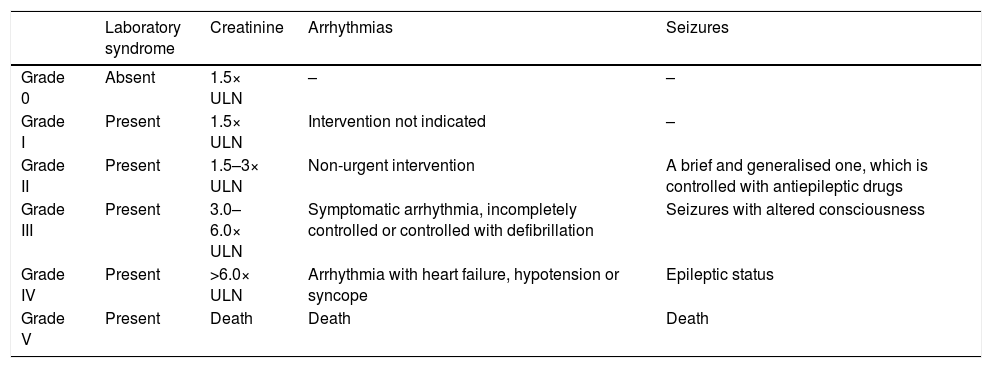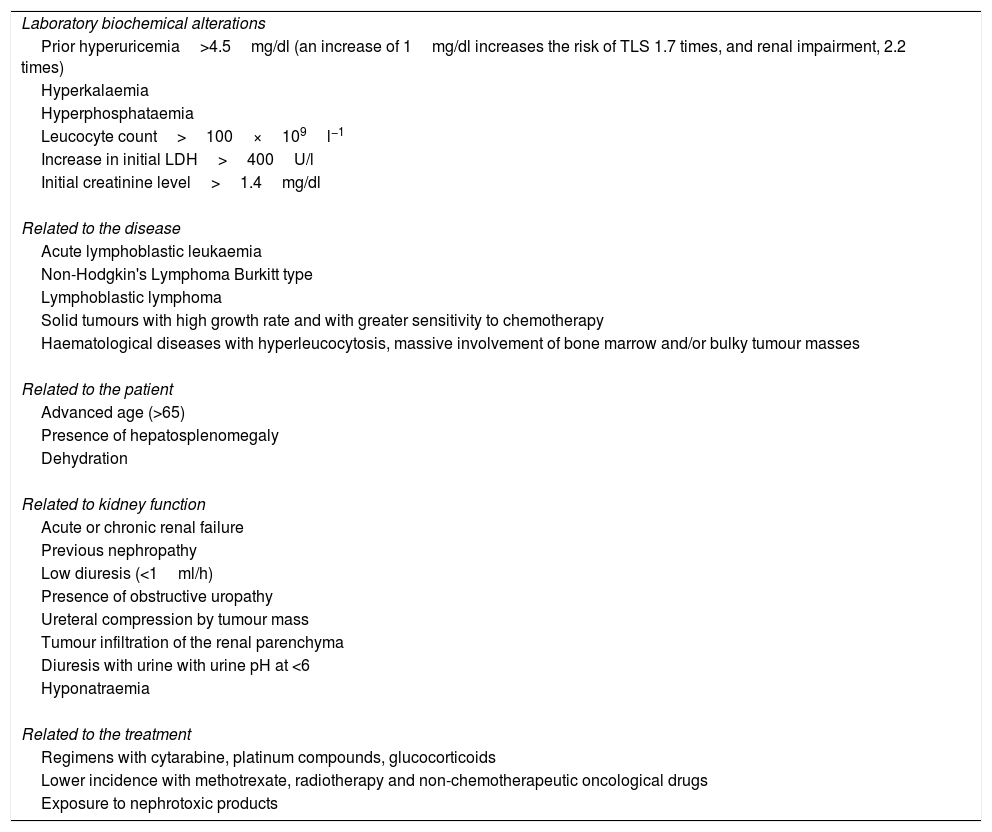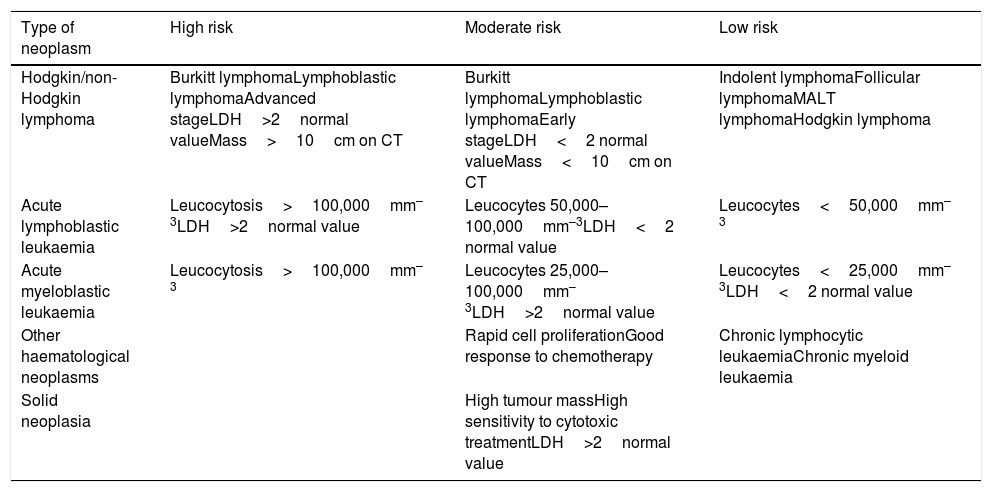Tumour lysis syndrome (TLS) is a life-threatening emergency characterised by a massive cytolysis with the release of intracellular electrolytes, nucleic acids, and metabolites into the circulation. TLS comprises laboratory derangements (hyperuricaemia, hyperkalaemia, hyperphosphataemia, and hypocalcaemia) responsible for acute kidney injury. In patients with haematological malignancies after cytotoxic therapy or spontaneously and also in advanced solid tumours. Assessment of disease specific risk level for TLS in patients receiving anti-tumoural therapy is essential for early diagnosis. Prophylaxis is the mainstay of management of TLS. It is important to routinely initiate a risk-adapted prophylactic strategy to correct metabolic alterations and preserve renal function. High and intermediate risk patients and patients with established TLS should be managed with multidisciplinary medical care in a hospital unit to receive monitoring and medical care. Renal replacement therapy should be considered in patients with refractory TLS.
El síndrome de lisis tumoral (SLT) es una urgencia potencialmente letal caracterizada por una muerte celular masiva que libera a la circulación sistémica iones, ácidos nucleicos y metabolitos intracelulares. El SLT conlleva unas alteraciones de laboratorio (hiperuricemia, hiperpotasemia, hiperfosfatemia e hipocalcemia) que son responsables de la insuficiencia renal aguda. La valoración del grado de riesgo del SLT en los pacientes en tratamiento citorreductor es primordial para el diagnóstico precoz. La profilaxis es clave en el tratamiento del SLT. Es importante iniciar de forma sistemática una estrategia preventiva adaptada al riesgo para corregir las alteraciones metabólicas y conservar la función renal. Los pacientes con riesgo intermedio o alto de SLT y aquellos con un SLT establecido deberían ser tratados por un equipo médico multidisciplinar en una unidad hospitalaria que favorezca la monitorización clínica y el tratamiento médico. La diálisis se debería utilizar en pacientes con un SLT refractario al tratamiento médico.












